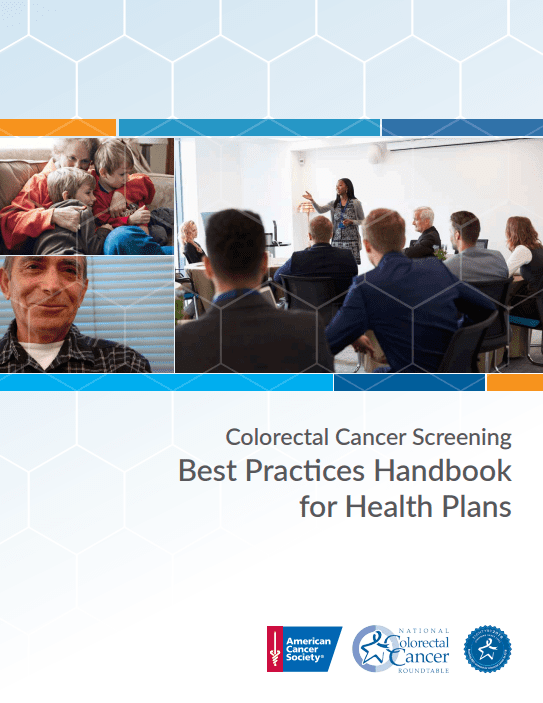Resource Type: Sample/template
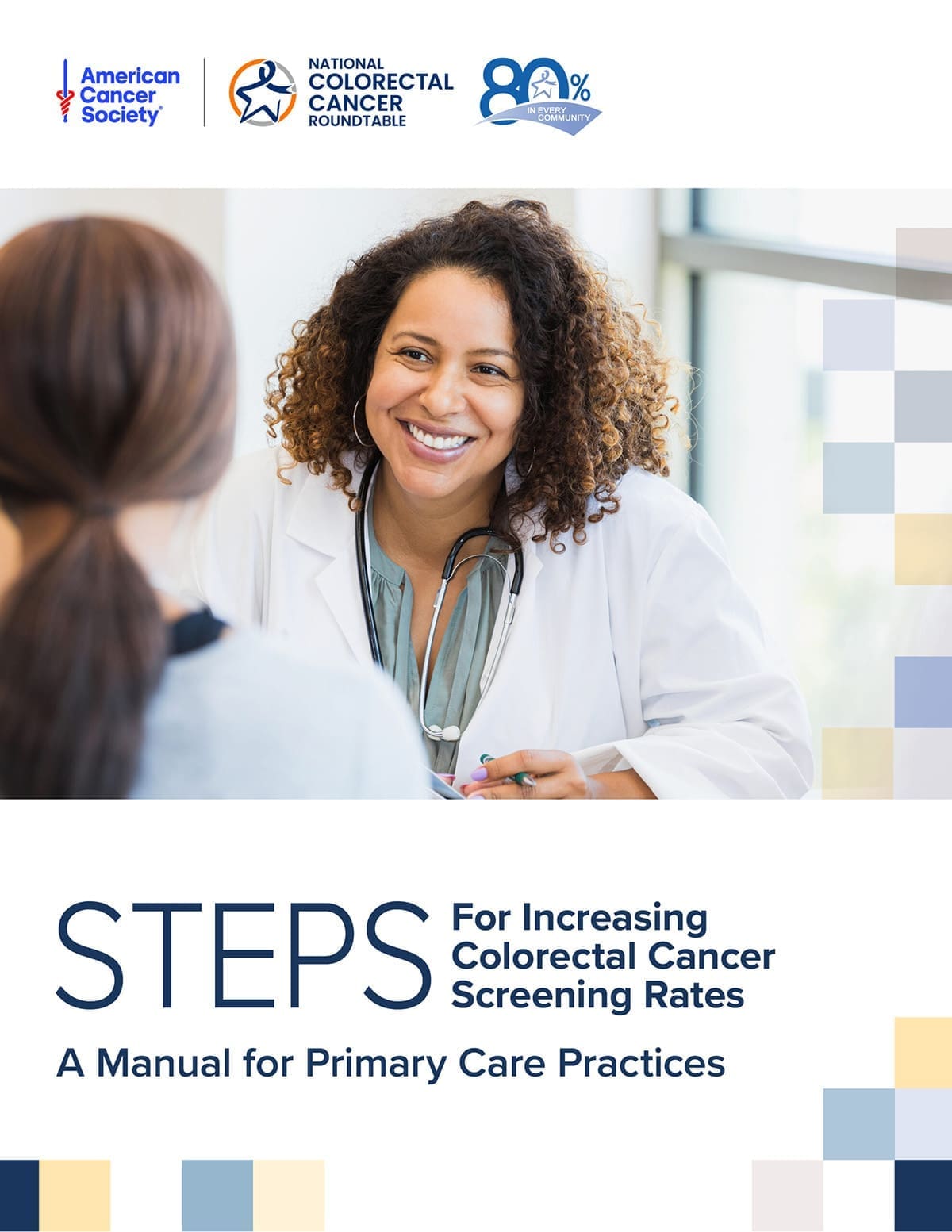
Steps for Increasing Colorectal Cancer Screening Rates: A Manual for Primary Care Practices
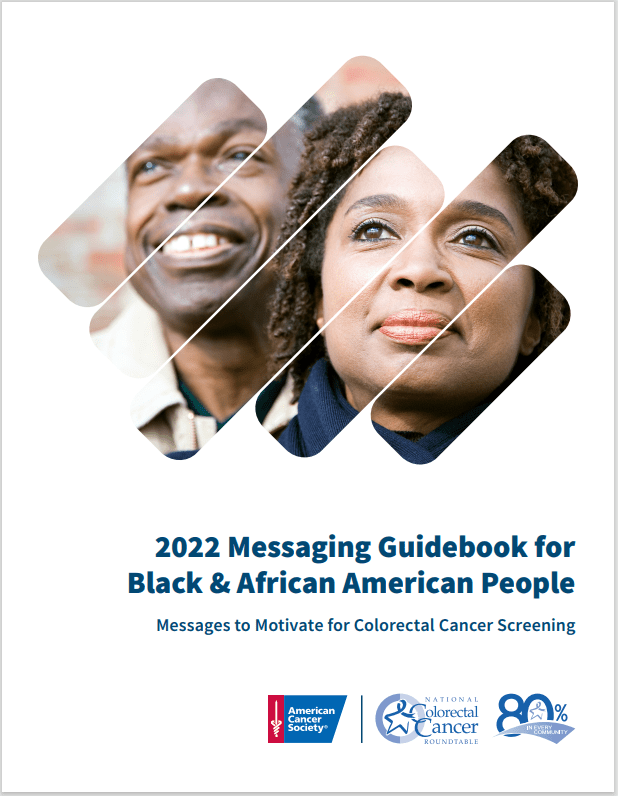
2022 Messaging Guidebook for Black & African American People: Messages to Motivate for Colorectal Cancer Screening
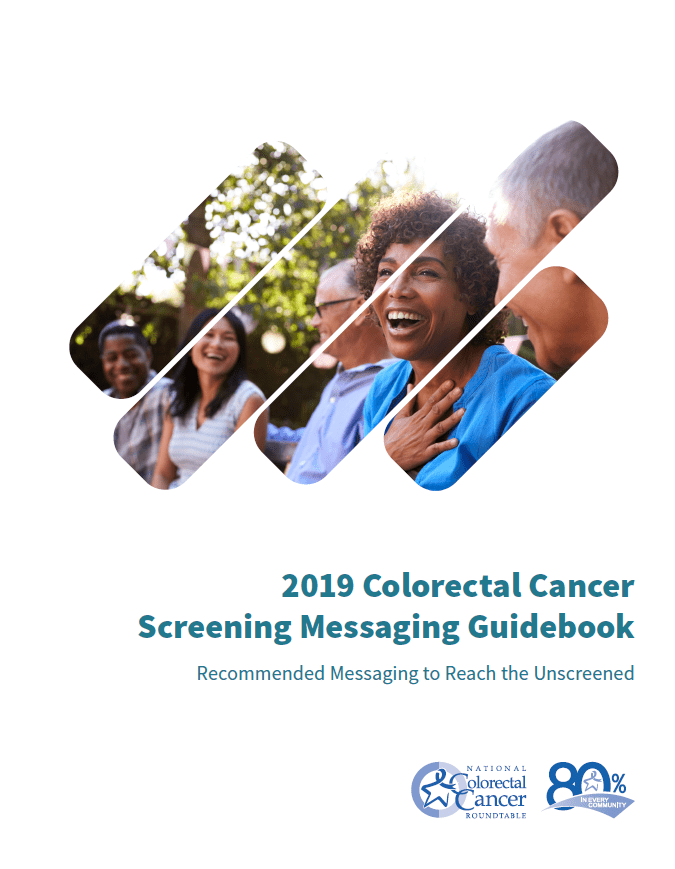
2019 80% in Every Community Messaging Guidebook: Recommended Messaging to Reach the Unscreened

Colorectal Cancer Awareness Month Social Media Toolkit – March 2019
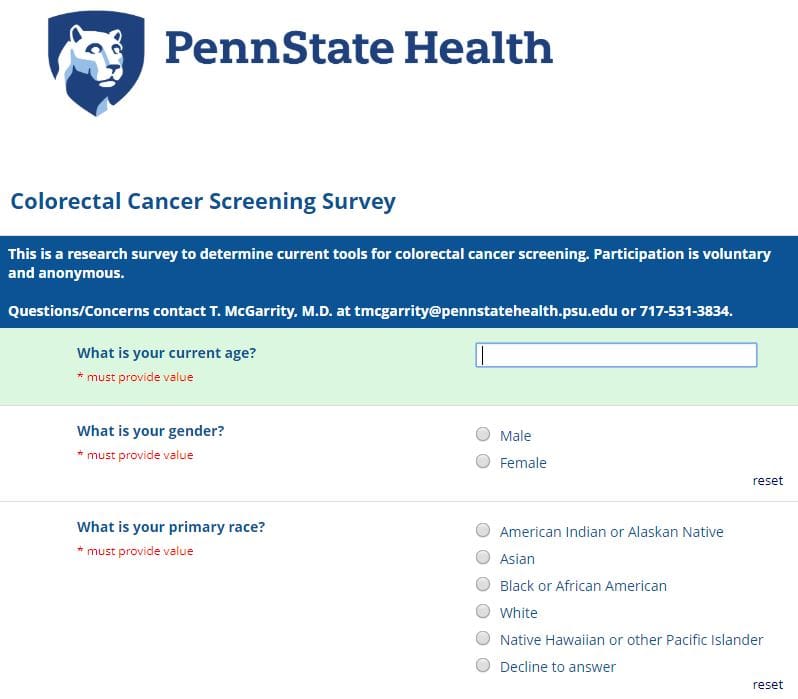
Penn State Health Electronic Employee Survey
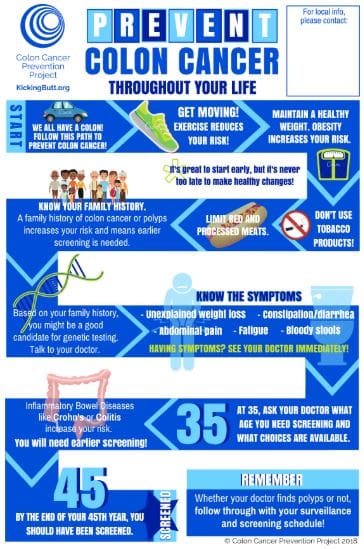
Prevent Colon Cancer Throughout Your Life Poster
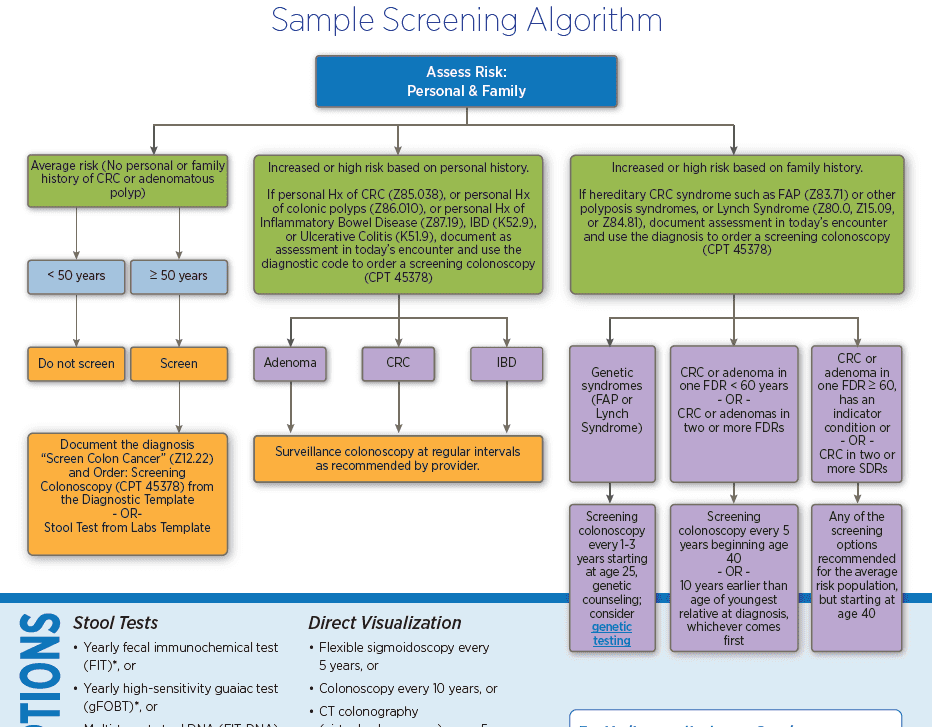
Sample Risk Assessment Screening Algorithm
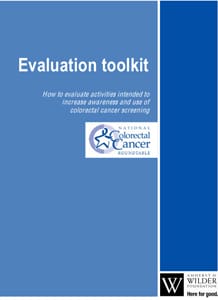
Evaluation Toolkit
